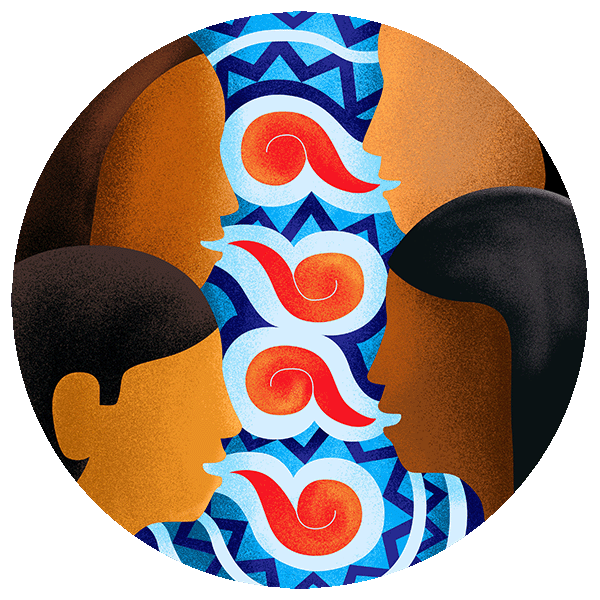
International Decade of Indigenous Languages - Ulla Karin Sarri on Indigenous Languages
Cultural Survival attended UNESCO's High-level Launch of the International Decade of Indigenous Languages in Paris in December 2022. In this interview, we spoke to Ulla Karin Sarri (Sami).
Produced by Avexnim Cojti (Maya K'iche')
Interviewee: Ulla Karin Sarri (Sami)
Remember Your Children by Salidummay, Used with Permission
"Burn your village to the ground", by The Halluci Nation, used with permission.
Binota Moy Dhamai Shares His Expectations For The International Decade Of Indigenous Languages
Cultural Survival attended the High-level Celebration of the International Decade of Indigenous Languages. In this interview, we spoke to Binota Dhamai.
Produced by Dev Kumar Sunuwar (Sunuwar)
Interviewee: Binota Moy Dhamai (Jumma - Tripura)
Remember Your Children by Salidummay, Used with Permission
"Burn your village to the ground", by The Halluci Nation, used with permission.
Grand Chief Wilton Littlechild on The International Decade Of Indigenous Languages
Cultural Survival attended the High-level Celebration of the International Decade of Indigenous Languages. In this interview, we spoke to Grand Chief Wilton Littlechild.
Produced by Dev Kumar Sunuwar (Sunuwar)
Interviewee: Grand Chief Wilton Littlechild (Cree)
Remember Your Children by Salidummay, Used with Permission
"Burn your village to the ground", by The Halluci Nation, used with permission.
Indigenous Languages Are At Risk Of Declining - Leena Evic
Cultural Survival attended the High-level Celebration of the International Decade of Indigenous Languages. In this interview, we spoke to Leena Evic.
Produced by Dev Kumar Sunuwar (Sunuwar)
Interviewee: Leena Evic (Inuit)
Remember Your Children by Salidummay, Used with Permission
"Burn your village to the ground", by The Halluci Nation, used with permission.
Richard Kistabish - Act Locally, Think Globally To Advance Indigenous Languages
Cultural Survival attended the High-level Celebration of the International Decade of Indigenous Languages. In this interview, we spoke to Richard Kistabish.
Produced by Dev Kumar Sunuwar (Sunuwar)
Interviewee: Richard Kistabish (Anicinabe, Algonquin)
Remember Your Children by Salidummay, Used with Permission
"Burn your village to the ground", by The Halluci Nation, used with permission.
Indigenous Peoples Need To Be Consulted On Projects In Their Territories
A theatrical drama group and youth from Sandrift in the Richtersveld area of the Northern Cape staged a theatrical demonstration outside Alexander Bay on June 25th, 2022.
The demonstration was intended to show how indigenous communities oppose a proposed Special Economic Zone for the Boegoebaai Green Hydrogen Project.
The Threatened Cultures Of The Danube Delta
In this podcast, Tristen Taylor & Nathalie Bertrams discuss the threatened cultures of the Danube Delta. The Danube River passes through Vienna, Budapest, Belgrade, and Bratislava. As far as cultures go, much has been lost in the Delta. This podcast explores how culture and language can become entombed in the history books if diversity is not purposefully protected.
Produced by Tristen Taylor & Nathalie Bertrams
Permission to use all music in this podcast has been granted to the producers.
We Need To Grow New, Young Speakers - Richard Grounds On Indigenous Languages
Over the past 25 years, Richard A. Grounds (Yuchi), Ph.D., has worked with Yuchi Elders to create new Yuchi speakers and bring his language back into his community, as well as advocating for Indigenous Peoples' language rights globally. He is currently Chair of the Global Indigenous Languages Caucus and Executive Director of the Yuchi Language Project. An article by Dr. Grounds on Yuchi language revitalization in the face of intellectual colonialism appears in Indigenous Languages and the Promise of Archives, from the University of Nebraska Press.
Using Technology For Multlingual Learning - The Yiaku Develop An App
The Yiaku people of Kenya have been living in the Makugodo Forest for a long time as hunter-gatherers.
In the past decade, the Kenyan government has asked them to officially manage the forest.
The forest has been thriving under their care.
What is not thriving, however, is the language of the Yiaku people
On the eve of International Mother Tongue Day 2022, we spoke to Moffat Kihoro who will tell us about an app that will help to revitalize the Yiaku language.
Produced by Shaldon Ferris (Khoisan)
Voices: Moffat Kihoro
Teaching And Learning Khoekhoegowab - Erna Esme Honnes Speaks
Technology has the potential to address some of the greatest challenges in education today. It can accelerate efforts towards ensuring equitable and inclusive lifelong learning opportunities for all if it is guided by the core principles of inclusion and equity. Multilingual education based on mother tongue is a key component of inclusion in education.
What are the challenges on the ground when it comes to teaching Indigenous languages?
Cultural Survival spoke to Erna Esme Honnes – a Khoekhoegowab teacher from the Damara people of Namibia who told us more.
